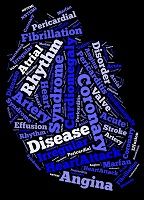Article
Heart Failure: a New Way to Predict Mortality
Author(s):
People who have blunted cardiovascular responses to psychologically stressful tasks have an increased risk of dying. Poor blood pressure responses to this stress can be associated with adverse outcomes.

People with heart failure who have blunted cardiovascular responses to psychologically stressful tasks have an increased risk of dying. Poor blood pressure responses to this stress can be associated with adverse outcomes.
Dutch researchers looked at stress responses in 100 patients with stable heart failure (HF) and reduced left ventricular ejection fraction (less than 40%) attending an outpatient HF clinic.
Their mean age was 66.6 and 74% were men.
The stress to which they were subjected consisted of being required to give a 3-minute speech on their personal strengths and weaknesses, lead investigator Nina Kupper, PhD, of Tilburg University in Tilburg, the Netherlands reported in an article in the Journal of the American College of Cardiology.
They were then given 10 minutes to recover. Their blood pressures and heart rates were assessed at several intervals.
During a 4-year follow-up period, 31 of the patients died, 15 of them from cardiac causes.
Multivariate analyses showed that patients with the lowest diastolic BP response to the stress test had an increased cumulative risk for mortality (all cause) compared to intermediate responders. A high response was unrelated to mortality.
Analyses also showed that a high heart rates response to acute mental stress was associated with a reduced mortality risk (a hazard ratio of 0.40 compared to patients with intermediate responses).
Patients who responded to mental stress with a drop in heart rate also displayed a decreased mortality risk in comparison with the intermediate group.
The majority of patients in the high-reactivity group died of cardiac causes whereas the majority of the negative reactivity group died of noncardiac causes, she wrote.
Looking at the topics the patients chose in their speeches, showed that 30% of the negative heart rate responders spoke only about positive personal characteristics compared to 8% of the intermediate heart rate responders and to 19% of the high-reactivity group.
“Results demonstrated that blunted depressed blood pressure reactivity to mental stress was independently associated with a higher mortality risk over the follow-up period, whereas hyper-reactivity was not,” she wrote.





